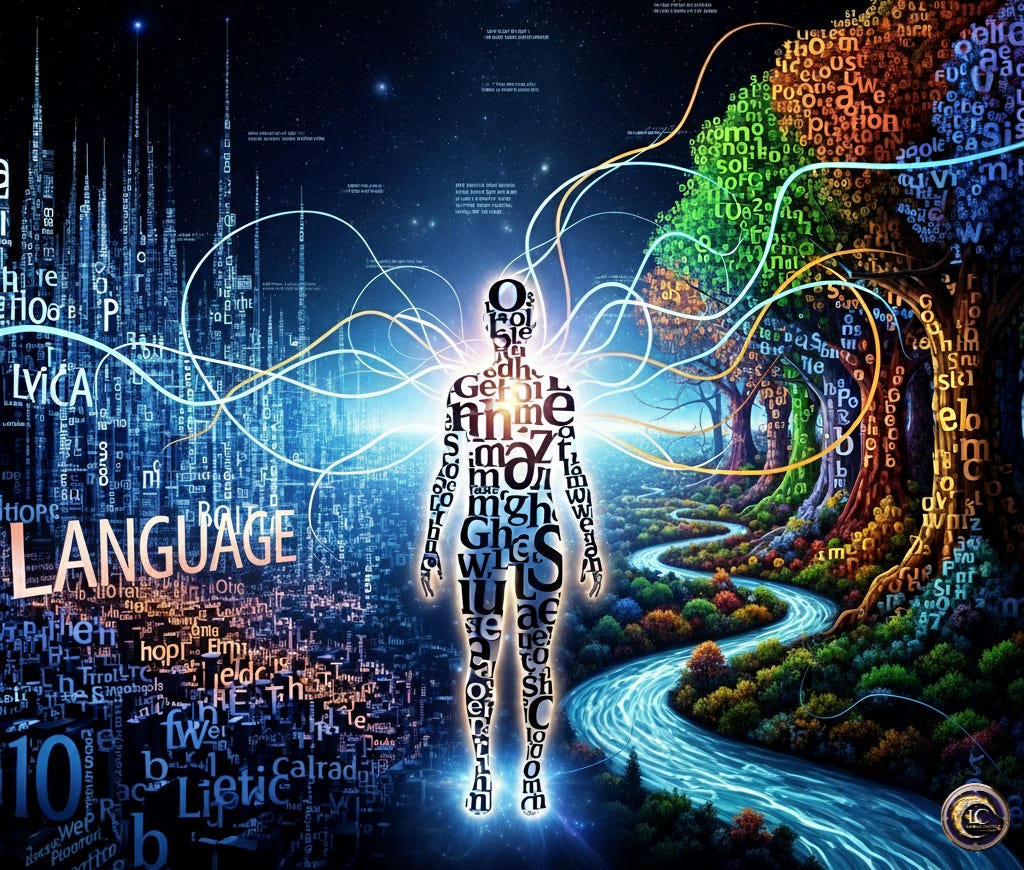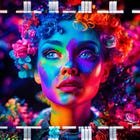The World is Made of Language
The unseen power of the words we use every day.
Consider this: the world you know is only made real through the words you use to describe it. Without language, would the concepts of “tree,” “sky,” or even “self” exist at all? What if reality isn’t something that exists independently, but something that only comes into being because we have the words to define it?
This idea fascinates me as both a writer and a neurodivergent thinker. I’ve often felt that language doesn’t just describe what I see and feel. It shapes it. Words are like a paintbrush on the canvas of perception.
When I call something “beautiful,” my whole body shifts toward appreciation. When I label something “ugly,” my energy pulls away from it. Same object. Same world. Entirely different reality, based on the language I choose.
Growing up, I struggled with words that didn’t quite fit the way my mind worked. Teachers, peers, and even society often told me I was “too much” of something or “not enough” of something else. Neurodivergent kids get boxed in by labels.
But at some point, I realized: those labels weren’t me. They were just words. Words that had been given power by repetition.
So I began to reclaim language for myself. To write stories, poems, and books that allowed me to create worlds where my way of seeing wasn’t “wrong,” it was just different. And that’s the magic of language: it reflects and builds reality.
Come to think of it. Indigenous cultures have words for shades of color that English doesn’t even recognize. Some languages don’t separate “past,” “present,” and “future” the way English does. When you don’t have a word for something, it’s harder to see it. But when you do have the word, a whole new dimension opens.
For me, writing is about exploring those hidden dimensions. It’s about noticing how the words we use every day form invisible walls or doorways. As neurodivergent writers, we often notice patterns and connections that others miss. We may twist words, invent new ones, or use them in unconventional ways, and in doing so, we expand the collective vocabulary of reality itself.
So here’s my question for you:
If the world is made of language, what kind of world are you creating with your words?
Because whether you’re writing stories, speaking to a loved one, or even talking to yourself in the mirror, your words matter. They don’t describe your world. They become it.
And maybe that’s the greatest gift of being neurodivergent: we get to reimagine the dictionary of existence itself.
Yours truly with words (and worlds),
Laura C. Cantu
Author, Dreamer, Neurodivergent Voice
P.S.
I’d love to hear from you. What words have shaped your world the most? Share them with me in the comments. Let’s expand our reality together.



